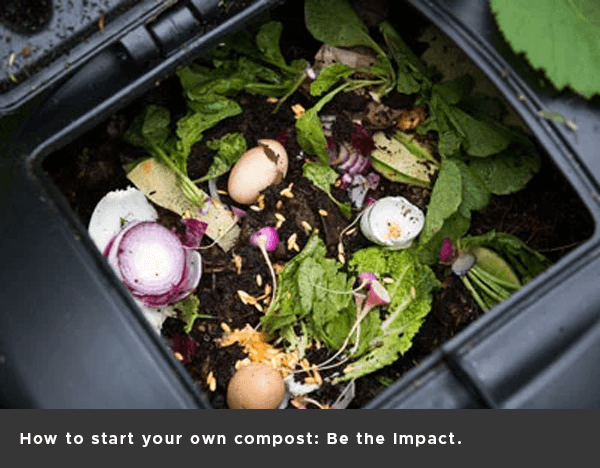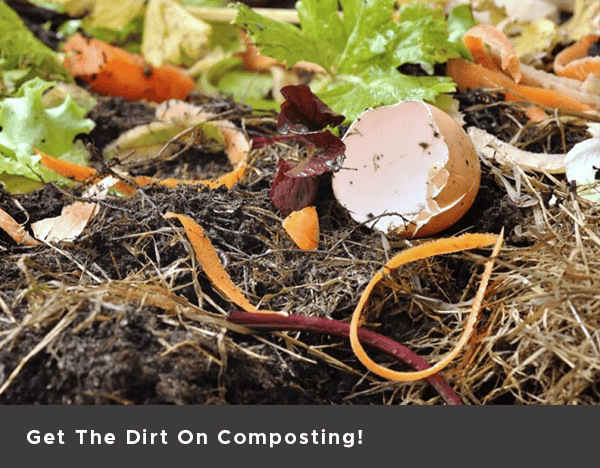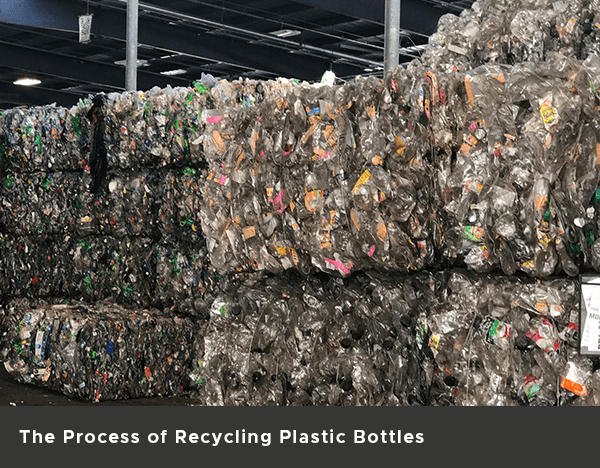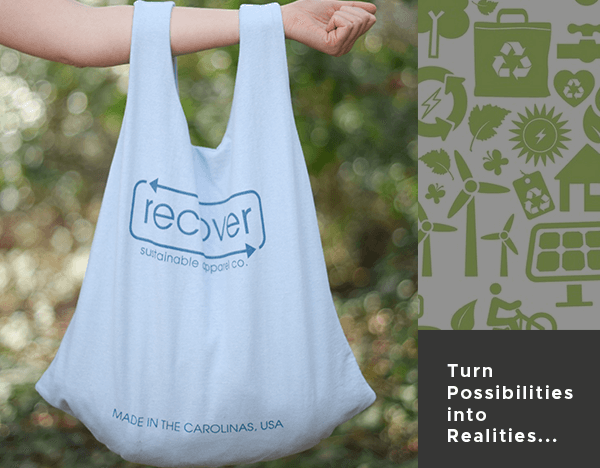
In our last Recover Sustainability Tip, we gave you The Dirt on Composting. Now that you know why starting your own compost is important, here’s how… it’s simple, clean, and non-odiferous if you do it right!
First of all, there are two types of composting: hot and cold. While hot composting is much faster and takes a little more work, both hot and cold composting consist of simply piling organic material interspersed with some soil. This creates humus, which is the best nutrient-filled soil builder to put on your garden, lawn, and veggie pots.
The Basics: What to Compost and What Not to Compost
COMPOST:
- Fruit scraps
- Vegetable scraps
- Tea
- Coffee grounds
- Egg shells
- Dry leaves
- Grass and plant clippings
- Small and fine wood and bark chips
- Sawdust from untreated wood
Keep a small compost bin in your kitchen for food scraps to make it easy!

DON’T COMPOST:
- Dairy products
- Anything containing meat, oil, or grease (although some compost fish skin)
- Any and all diseased plant material
- Weeds that go to seed
- Dog and cat poop
- Sawdust and chips from treated wood
Also, some say that onion and garlic scraps repel earthworms, which are vital to gardens, so keep that in mind as a consideration.
How To Cold Compost:
- Make a pile of compostable materials (food and yard scraps) in a large bin, or in an animal-proof area in your yard.
- Over the course of about a year, this material will decompose.
- To use the humus, a couple of times a year, empty your bin or shift your pile to get to the rich nutrient-filled, decomposed material on the bottom. Spread in garden, lawn or pots!

How to Hot Compost:
- Gather enough compostable materials to make your pile at least 3 feet deep. These compostables should consist of wet, green materials, such as lawn clippings and food scraps, and dry, brown materials, such as autumn leaves or untreated wood sawdust.
- Make your pile. Alternate layers of wet, green materials and dry, brown materials.
- Routinely water your pile as needed, so that it remains the consistency of a damp sponge. You don’t want it too wet because that will water log and drown the microorganisms in your compost pile and it will rot, rather than compost.
- Monitor the temperature of the compost pile. The center of the pile should be warm. You can gauge this with a thermometer (or by sticking your hand cautiously into the pile to see if you feel heat). The center of hot compost piles can get to between 120 and 170 degrees Fahrenheit in a matter of days. It is this heat that creates an environment that decomposes materials in about 4 weeks, rather than a year.
- Routinely turn your compost. When the center of the compost is between 130 and 150 degrees Fahrenheit, turn the pile with a pitch fork to help it “cook” faster. This also helps the pile from developing an odor, becoming matted down and rotting.
- When the compost pile stops giving off heat and becomes soil like, it is ready to spread on your garden, lawn, and pots!
PRO TIP: Compost Tea
Some gardeners make “Compost Tea.” To do this, they “steep” finished compost in water for a couple of days and then drain the liquid and use it as a natural fertilizer.

Composting reduces waste in landfills and reduces global carbon emissions, while simultaneously creating the best “food” for your garden and lawns. It’s a simple and easy way for all of us to create a positive impact for a sustainable tomorrow.

Here's a shot of our compost bin at Recover. We work with a local company called Crown Town Compost that offers a weekly pick-up for both residential and commercial compost. There are local companies all over the country that offer similar services as Crown Town, so be sure to check out your local compost businesses to get in the composting game quickly and easily.






